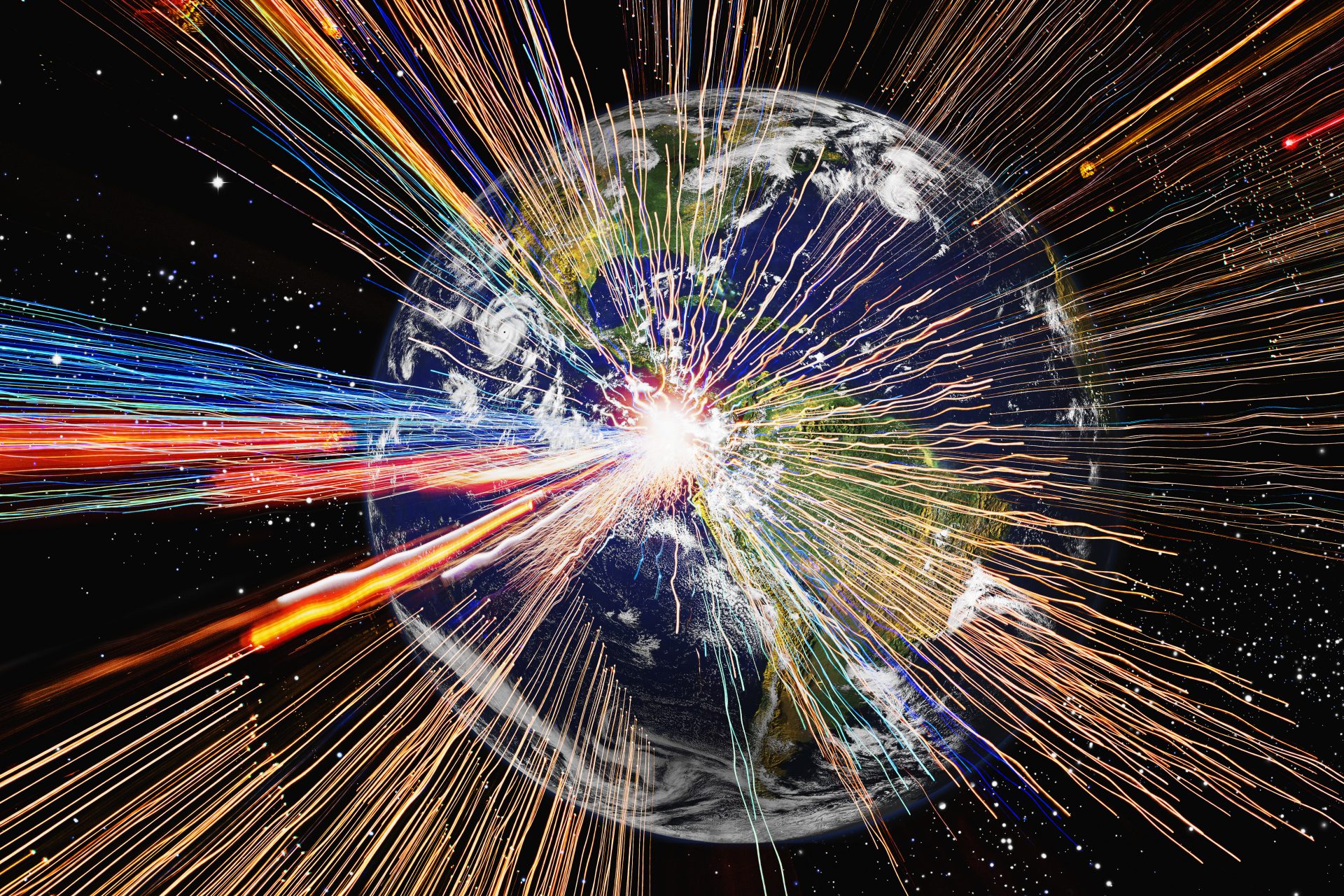Rogue planets are the doomsday scenario no one is talking about
Death from above in the form of an unseen asteroid impact is a doomsday scenario that may keep some astronomers up at night but there's another cosmic force of destruction that could destroy the planet one day: a rouge plant. But why are they and should we be worried?
Rogue planets aren’t a difficult concept to understand. They're essentially just planets that aren’t tied to the gravity of any one particular star, and as a result, they roam free throughout the void of space.
Astronomers don't understand why some planets form and don’t find a star to orbit. But there are a few competing theories about how a rogue can form and why they find themselves untethered from an orbit.
"Modern theories of planetary system formation suggest that many planets are formed around young stars when they are in the short-lived phase of growing their planetary systems,” Rochester Institute of Technology’s Michael Zemcov explained to Newsweek.
“But many of these are ejected due to gravitational scattering as the planetary systems organize themselves over time," Zemcov continued, adding that as a solar system’s planets form their orbits, smaller objects can be ejected into space by larger ones.
Zemcov explained that it didn’t really matter what the composition of a larger planet was in the ejection event as long as it was heavier than the smaller object ejected. A rocky planet as well as those made of gas or ice could launch a smaller object into space.
This isn’t the only way rouge planets are thought to be formed, though. Newsweek also spoke with University of Sheffield Astrophysicist Richard Parker about two theories that could explain how rogue planets form and are injected into space.
"They might form out of gas clouds in space, in the same way, stars do, or they may have formed in a disc around a star and then been ejected due to an encounter with another star or an interaction with another planet in the same system," Parker said.
Despite the little we know about how rogue planets form, we actually know quite a lot about how to find these lightless floating space objects—and as of only recently—we’ve learned that there are a lot more wandering around the universe than astronomers previously thought.
According to Discovery’s Paul Sutter, there are at least a few hundred billion planets orbiting stars in the Milky Way galaxy right now, and for every one of those celestial bodies, there are between one and ten rogue planets drifting through the void of space.
“That’s right: there could easily be a trillion rogue planets wandering the interstellar depths of the Milky Way,” Sutter wrote in a 2022 article on the wonders of rogue planets and why we might ant to be worried about these dangerous cosmic phenomenons.
Sutter added that these planets are “ferociously hard to detect” because they don’t shine brightly and only “glow weakly” in infrared from what little internal heat they still retain from their creation. But that hasn’t stopped astronomers from finding them.
In 2021, a team of astronomers found 70 rogue planets roaming the Milky Way, all of which had a mass roughly similar in size to Jupiter according to Forbes’s Jamie Carter.
So we know rogue planets exist, we’ve found them and we've projected that there could be trillions in our galaxy alone. But is it possible that one of them could make its way to our solar system? If one did find its way to us, how would it affect the Earth?
Keele University Astrophysicist Jacco van Loon explained to Newsweek that a rogue planet's collision with Earth might not necessarily destroy us. If the planet was a gaseous giant like Jupiter Earth could pass right through and get spit out the other end.
We would probably lose our atmosphere in the encounter, Van Loon conceded, but the Earth would still survive. Although everything on it probably wouldn’t. A rogue planet of comparable “mass and density” would destroy Earth, though, the astrophysicist added.
However, it isn’t a direct collision we should be worried about according to Michael Zemcov. The scarier scenario is one where a brief encounter pushes the Earth into a different orbit or ejects the planet from our solar system, turning us into our own rogue planet.
"Then we would likely all freeze, or possibly cook, in a matter of weeks. That said, I am not losing any sleep over such a possibility." Zemcov explained.
The likelihood of the Earth encountering a rogue planet is about a 1 in 1 billion chance in the next 1000 years according to The University of Toronto’s George Brown. But that’s not a zero, so maybe we do have a little cause to worry…
More for you
Top Stories
































